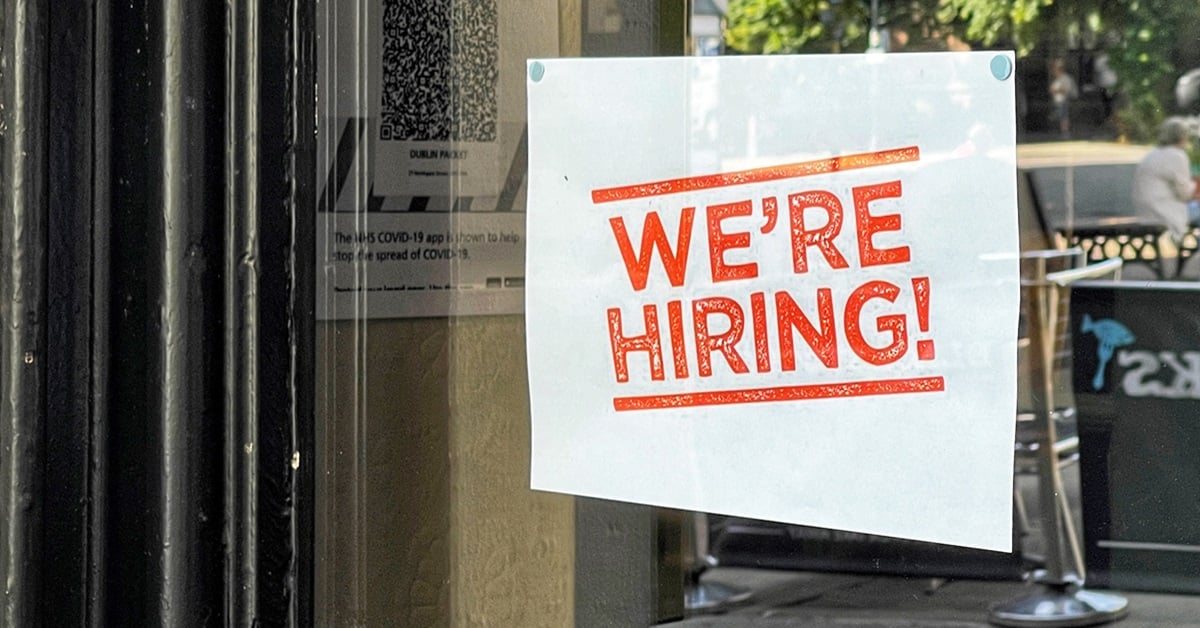Hospitality is known for being one of the toughest industries out there. From technology to economics, there are always new issues and challenges to be aware of.
We've assembled five of the most pressing current issues the hospitality industry faces, and how your business can remain competitive in spite of them.

1. Staff shortages
Hospitality staff shortages are having a serious impact in Australia and New Zealand. A major cause of staff shortages in hospitality is poor working conditions employees experience.
A December 2023 survey into the mental health and wellbeing of chefs in Australia and New Zealand found that:
- 67% of chefs work more than 38 hours weekly, with a fifth of chefs working between 52-61 hours.
- A quarter of chefs don't receive their legally required breaks.
- 15-20% of chefs reported economic hardship.
- Two-thirds also reported working when sick.
These concerns have caused many hospitality professionals to leave or want to leave their positions.
Issues of staff shortages were also exacerbated during the COVID-19 pandemic. In many cases, non-citizens were compelled to leave Australia and New Zealand. Many hospitality workers also left the industry at this time due to increasingly unstable working conditions.
While there are signs that the worst of hospitality staff shortages are in the past, owners and managers should still be prepared to deal with this issue. Methods for managing staff shortages include:
- Overseas workers: In certain instances, restaurants in Australia and New Zealand can sponsor overseas workers to fill staff shortages. In Australia, restaurants can make use of industry labour agreements. In New Zealand, options like Skilled Migrant Category Resident Visas are available.
- Use automation: Automation in restaurants including restaurant reservation systems, digital kiosks and robot waiters can be a great way to reduce the number of staff needed on a given shift.
- Use efficient rostering: Chances are, your rosters aren't as optimised as they could be. By shifting to an option like a rotating roster, you may find it easier to make the most out of the staff members you have.
2. Inflation and the cost of living
Inflation has been very impactful in Australia and New Zealand in recent years. It's no surprise to see the ways it has affected the hospitality industry.
In our 2023 hospitality inflation guide, we tracked the many ways inflation was impacting customers and restaurants around Australia and New Zealand. In Australia, fine dining restaurants were hit especially hard, with a 28% decline in bookings at fine dining restaurants between January 2022 and March 2023.
In New Zealand, the cancellation percentage for fine dining restaurants increased by 33% between March and December 2022.
Our 2024 Australian hospitality statistics guide showed that the situation had improved in some areas and an overall upward trajectory in hospitality revenues. However, there was still plenty for restaurant owners and managers to be concerned about.
Specifically, one survey stated that 4 out of 10 consumers were actively making adjustments to reduce the number of lunches and coffees they were having away from home.
Restaurants can tackle this challenge with more cost-efficient options. Consider implementing a loss leader like a kid's menu to create greater perceived value for your customers. This will help to convince them that a meal at your venue is worth the cost.

3. Uptake of online delivery
Online delivery was an increasingly prominent part of the hospitality industry in the years leading up to the COVID-19 pandemic. As the world grappled with quarantine and lockdowns, it took on an especially important role.
Now, customers expect to find their favourite restaurants on convenient delivery apps. 7 million Australians use a meal delivery service in an average three months. If your hospitality business isn't taking advantage of this opportunity, it could have seriously negative effects on your venue.
Some methods to achieve success with online delivery include:
- Delivery-focused menu: Ensure your delivery menu is filled with delicious, appealing dishes that travel well. Popular choices include pizzas, pasta and wraps.
- Seamless customer experience: Convenience is king in the world of digital ordering. Ensure that whether your online delivery system is online or in-house, it functions smoothly so that customers get hot, excellent food in the timeframe they expect.
- Reviews: Reviews are crucially important for success in online delivery. If you are using a third-party platform such as Uber Eats or Menulog, ask your most satisfied customers to leave reviews. In the process, ensure you comply with relevant company policies.
4. Sustainability
Hospitality businesses must contend with consumer attention on environmental issues..Research has found that customers are concerned with issues including land degradation, over-consumption of natural resources and greenhouse gases. These concerns play a role in their purchasing decisions at hospitality venues.
The good news for restaurants is that 78% of customers are willing to pay more for meals in a green restaurant. It's well worth making the green switch in your venue.
Here are a few ways you can make to implement sustainable practices in your venue:
- Source local products: An impactful move towards sustainability is to source local products to use in your menu. These ingredients can also make your food fresher and more delicious.
- Reduce food waste: Food waste is a major environmental control. Track food waste closely to find out the main causes of it in your restaurant. It may be due to improper portion sizes or poor inventory management.
- Manage energy and water usage: Reducing energy and water usage is an excellent way to improve sustainability in your venue while saving money, too. Some quick ways to do this include implementing energy-efficient appliances, LED lighting, and low-flow water fixtures.

5. Evolving customer expectations
There are many more consumer preferences that hospitality managers need to be aware of. As the world changes in many ways, restaurants must be aware of these expectations and prepare accordingly.
Some of the major areas of evolving customer expectations are:
- Technological integration: There's no shortage of ways technology is changing hospitality. Many customers expect you to make the most of technology to produce the best experience possible. Consider having digital menus available via QR codes in your restaurant and ensuring that you accept contactless payments.
- Dietary requirements: According to YouGov, just 66% of Australians identify as "meat eaters". The remaining 44% identified as "flexitarians" or follow more restrictive diets. Many diners are also lactose or gluten-intolerant. Others follow more recent diets such as the ketogenic diet. A diverse and varied menu is necessary to make your restaurant accessible to as many customers as possible.
- Online presence: In the digital age, customers not only expect to find out about brands through the Internet and social media, but to interact and build a relationship with them. Look for brand mentions on social media and start a conversation. In addition, respond to as many online reviews as you can, good or bad.

How to respond to challenges in hospitality
While the many challenges facing the hospitality sector may seem daunting, there are several actionable steps you can take to put your business in the best position to respond to them:
- Stay informed: Understanding the latest happenings in hospitality is critical. Subscribe to industry publications and join professional networks. You can also explore the ResDiary blog, containing dozens of articles on the latest industry trends and happenings.
- Staff training: Your staff is your most important asset. Provide frequent training sessions to help them perform at their best. This is especially important in times of change in your business. For example, if you are including new technological processes in your business, ensure your staff are properly prepared.
- Seek customer feedback: Customer feedback is the best way to discover what your diners want from your business. Whether you're soliciting online reviews or private feedback, get as much of it possible and listen to it with an open mind. Often, it will present exciting new paths forward for your business.
Manage current hospitality issues with ResDiary
The ResDiary table management system is the perfect way to tackle pressing issues in hospitality. Comprehensive reservation management makes it easy to manage your staff while having a strong understanding of foot traffic night after night.
It will streamline your operations while deepening your understanding of costs and income in your business. You can even use ResDiary to implement an online ordering system in your venue.
ResDiary also boasts a range of integrations to bolster your business. Get the help you need with everything from EPOS systems to marketing solutions.




.jpg)